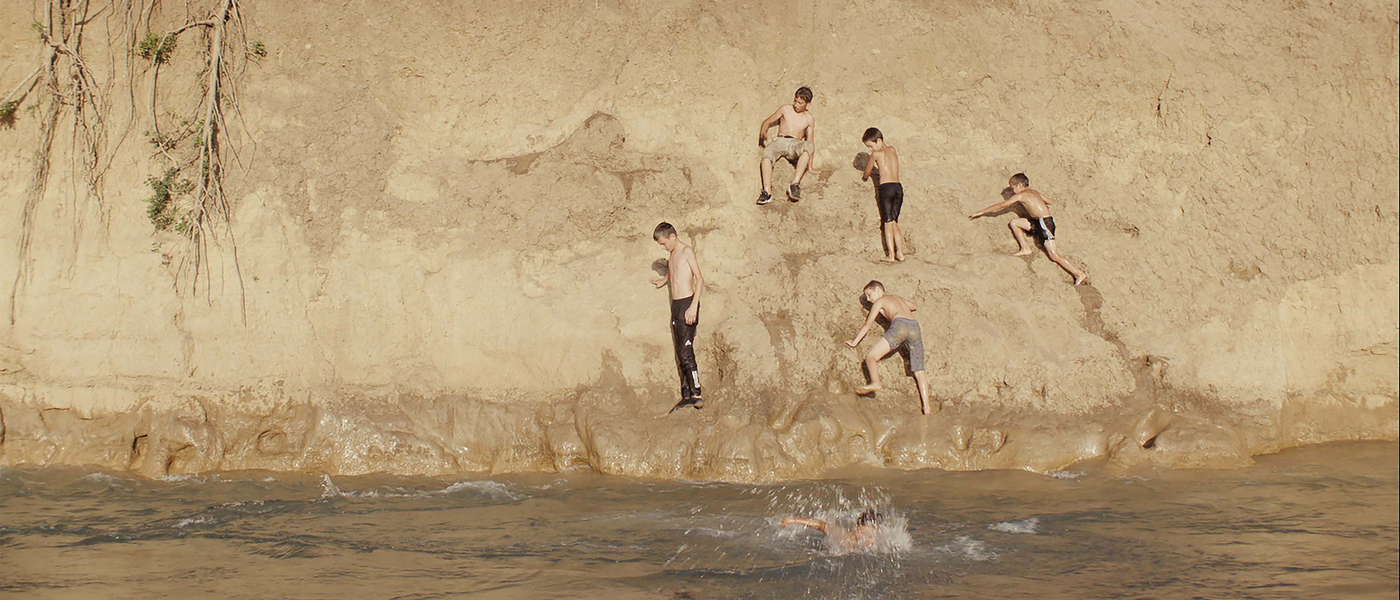Interview with Déni Oumar Pitsaev, Imago director
By Damien Leblanc

By Damien Leblanc
By filming his own trip to Georgia, where he reconnects with his fragmented Chechen family and dreams of building a house that represents freedom, Déni Oumar Pitsaev has managed to create a deeply moving documentary about exile, war trauma, and utopia. Let’s meet him.
Interview with Déni Oumar Pitsaev
We were laughing with my producer, saying that the true producer of the film was my mother. In the sense that she is the one who did everything for me to have land in Pankissi, a valley in Georgia on the border of Chechnya. My mother gifted me that land and my cousin - whom we also see in the film - insisted that I come. Since I cannot go back to Chechnya, he told me that Pankissi was like a rootless Chechnya, with more freedom. My mother didn’t want me to lose my roots; she wanted me to become a traditional Chechen man who gets married because he has come of age. Women are usually the ones to experience that kind of pressure, and I thought it was funny for a man to also feel that societal pressure. So I thought that going there to see the land would be the opportunity to make a film with all these characters. And when my father heard that I was coming to Pankissi, he offered to come help me build a house - he still felt guilty for abandoning me when I was a child. This place, on the border of Georgia and Chechnya, thus became a metaphor. If I built a house there, it would be like a beacon calling me, and perhaps I could artificially rebuild my family: my mother, my father, my cousins, my brothers on both sides… A way to bring us together again, through cinema.
This film was very written but it was a fictional writing process because I didn’t know exactly what would happen. I hadn’t seen my father in eight years and, in the past, I had only ever spent two nights with him, so everything I wrote about him came from my imagination, without really knowing him. And when he got in front of the camera, he behaved as if we had just parted a few weeks earlier! He was very happy I was making a film, and very proud in front of his wife and sons - which was really odd for me, since I was suddenly discovering my father and brothers. So everything is true in this documentary, the dialogues are not learned lines but real situations.
There had already been coverage of this valley. It is sadly known as a valley of jihadists, as many have left and joined ISIS. So the images associated with this valley had a rather sombre tone, but when I went there for the first time, I didn’t feel that; rather, I experienced a feeling of joy and summery freedom. I liked the people I was filming, I wanted to watch them for who they really are, without falling into a pity-driven narrative. With the cinematographer, we wanted to capture the natural beauty and peacefulness of the place. While editing, we wanted to convey the feeling that, while it is a far, remote place, it could as easily be the South of France or Corsica - to create a feeling of closeness.
I grew up in different places, and almost all the houses I lived in no longer exist. So I somewhat lost the sense of being rooted anywhere, and this gift of land in Pankissi appealed to me because I could finally own something, physically. It’s surprising to others that I wish to build a house on stilts, because for everybody over there, building a cellar is important - as war could always return. But I didn’t want to think about a cellar, I wanted to break free from that fear. I had experienced war enough during my childhood and I didn’t want to be scarred by the past. I want to dream. So my house will be built up high - a little unconventional, a little provocative. The end of the story remains open because I thought that not everything should be said or shown. I wanted to share this experience, this trip, and this journey so that the audience could also reflect on their own lives.